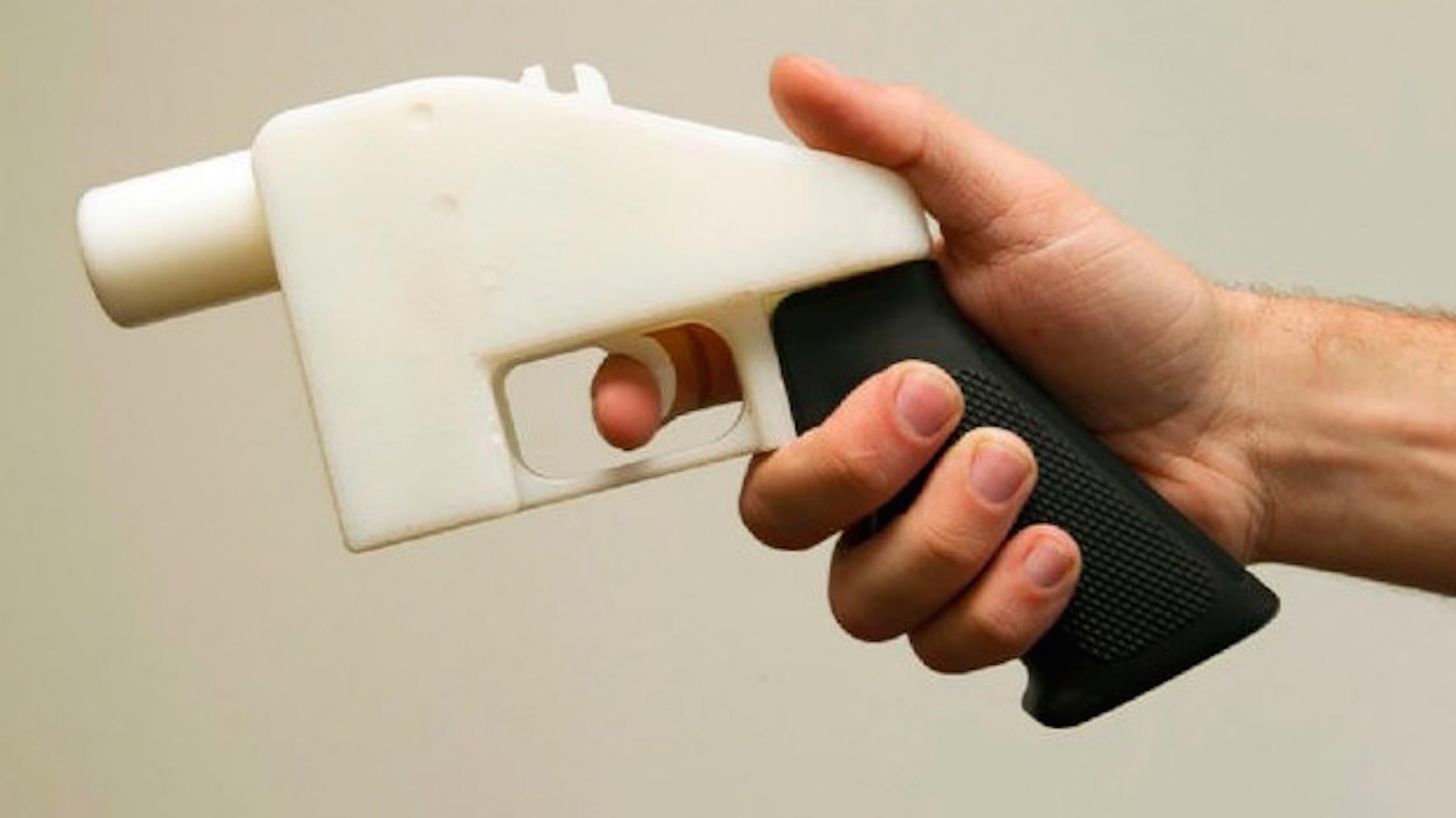Federal judge blocks US release of 3D-printed gun blueprints
The president said he was 'looking into' 3D gun printing, but his administration already allowed gun makers to upload weapon blueprints online

Your support helps us to tell the story
From reproductive rights to climate change to Big Tech, The Independent is on the ground when the story is developing. Whether it's investigating the financials of Elon Musk's pro-Trump PAC or producing our latest documentary, 'The A Word', which shines a light on the American women fighting for reproductive rights, we know how important it is to parse out the facts from the messaging.
At such a critical moment in US history, we need reporters on the ground. Your donation allows us to keep sending journalists to speak to both sides of the story.
The Independent is trusted by Americans across the entire political spectrum. And unlike many other quality news outlets, we choose not to lock Americans out of our reporting and analysis with paywalls. We believe quality journalism should be available to everyone, paid for by those who can afford it.
Your support makes all the difference.A federal judge has issued a temporary restraining order blocking the digital publishing of 3D weapon blueprints, in a lawsuit brought by eight states and Washington DC.
Now, Donald Trump's administration may decide whether Americans can log onto a website and download undetectable 3D printable guns.
The US State Department settled a lawsuit it filed under the previous administration with Defense Distributed, a company owned by guns rights activist Cody Wilson, which sought to provide computer files for anyone seeking to design a 3D printed gun. In its settlement, the federal government gave permission for Defense Distributed to begin hosting those files on its website 1 August. The states argue the federal settlement violates their constitutional right to regulate guns under the 10th Amendment, which grants to individual states the right to legislate issues not delegated to the federal government by the constitution.
Bob Ferguson, Washington state’s attorney general, released a statement announcing the lawsuit and warning of the potential threat to public safety brought by printable guns.
“These downloadable guns are unregistered and very difficult to detect, even with metal detectors, and will be available to anyone regardless of age, mental health, or criminal history,” he said. “If the Trump administration won’t keep us safe, we will.”
Washington state is joined by Massachusetts, Connecticut, New Jersey, Pennsylvania, Oregon, Maryland, New York, and the District of Columbia.
The lawsuit also alleges the federal government is violating the Administrative Procedures Act, which requires notice to be provided to Congress before guidelines surrounding printable weapons are changed.
Chuck Schumer, the Senate minority leader from New York, released a statement last month raising awareness about the otherwise underreported settlement, vowing congressional action against the rollback of protections against 3D weapon printing.
“Sadly, the feds are not only shoulder-shrugging this threat to public safety by refusing to fully enforce laws already on the books, but they could be sowing the seeds of real disaster by allowing dangerous ghost gun blueprints to be shared freely online,” Mr Schumer said. “I am not only sounding the alarm on this issue, but I have a message for the administration: Congress will use its powers to try and stop this madness.”
A letter signed by 40 members of Congress was then sent to the chairs of the Judiciary and Foreign Affairs Committees, urging them to review the settlement.
“The Trump Administration’s decision to settle this case will only worsen the gun violence epidemic in America,” Ted Deutch, a Massachusetts Democrat, wrote in the letter. “We shouldn’t have to wait for someone to kill someone in a House office building after sneaking past security with a plastic 3D printed gun to do something to stop this. And we can’t let another day go by allowing the paralysis and dysfunction of Congress to prevent us from making our communities safe.”
Whether the federal government decides to restrict 3D weapon printing after public scrutiny remains unclear. On Tuesday – the day before Defense Distributed would be permitted to upload its weapon blueprints online – the president tweeted, “I am looking into 3D Plastic Guns being sold to the public. Already spoke to NRA, doesn’t seem to make much sense!”
Regardless of Mr Trump’s plan, states with tough gun control measures and gun control lobbying groups are going forward with their fight to stop 3D weapon printing in its tracks.
Three gun control groups filed a request for a temporary restraining order blocking Defense Distributed with a federal judge in Texas last week, which was later denied. In a statement, the Brady Campaign to Prevent Gun Violence, the Giffords Law Centre and Everytown for Gun Safety vowed to “pursue every avenue” in order to block the release of 3D printer gun guidelines.”
“This is not an argument about free speech,” said Adam Skaggs, chief counsel of Giffords Law Centre. “This comes down to whether we want people who would never pass a background check to be able to download lethal, 3D printed guns with the click of a mouse … We stand together and will pursue every avenue to stop this danger.”
Defense Distributed is moving forward with its own fight, publishing the downloadable components to AR-15 and AR-10 semi-automatic rifles ahead of the 1 August date, along with a Beretta M9 handgun and another gun the company created in 2013 called the Liberator pistol. Those blueprints have already been downloaded by thousands of people.
Join our commenting forum
Join thought-provoking conversations, follow other Independent readers and see their replies
Comments